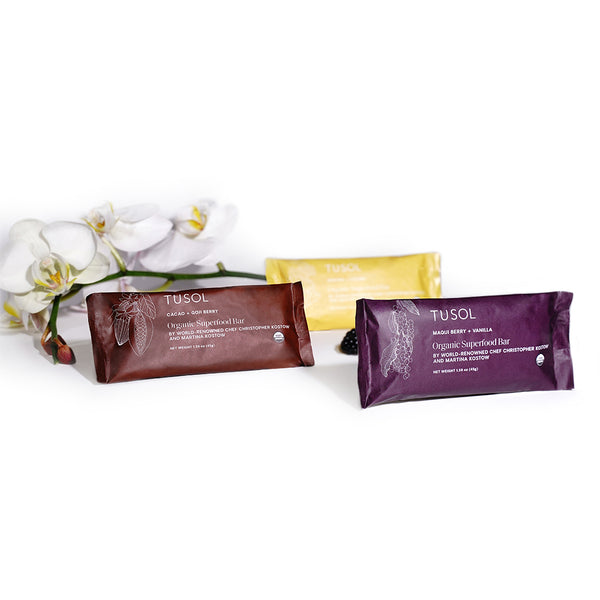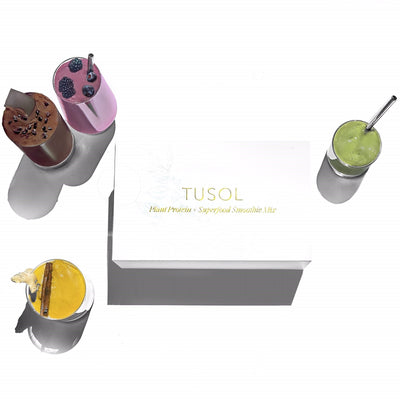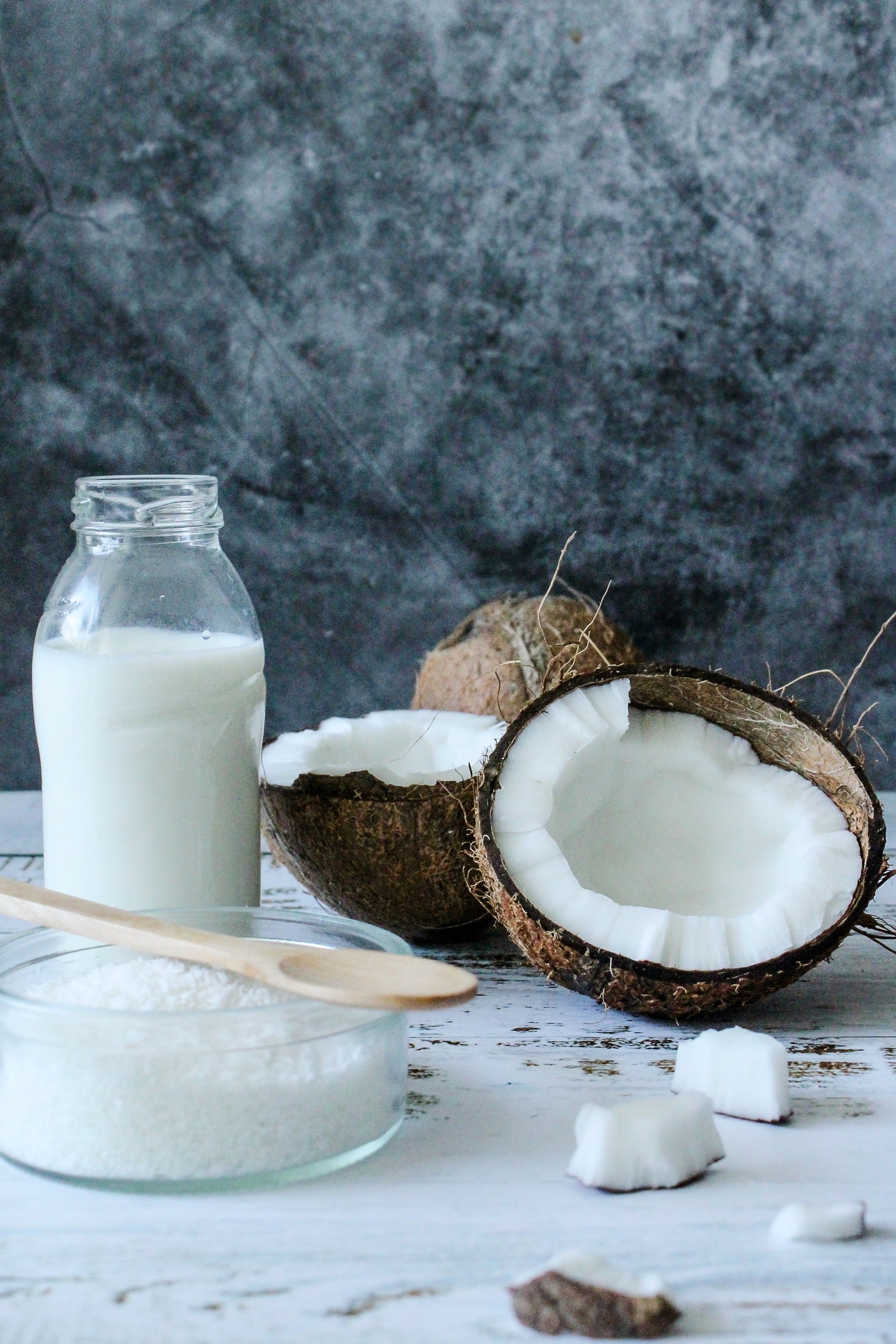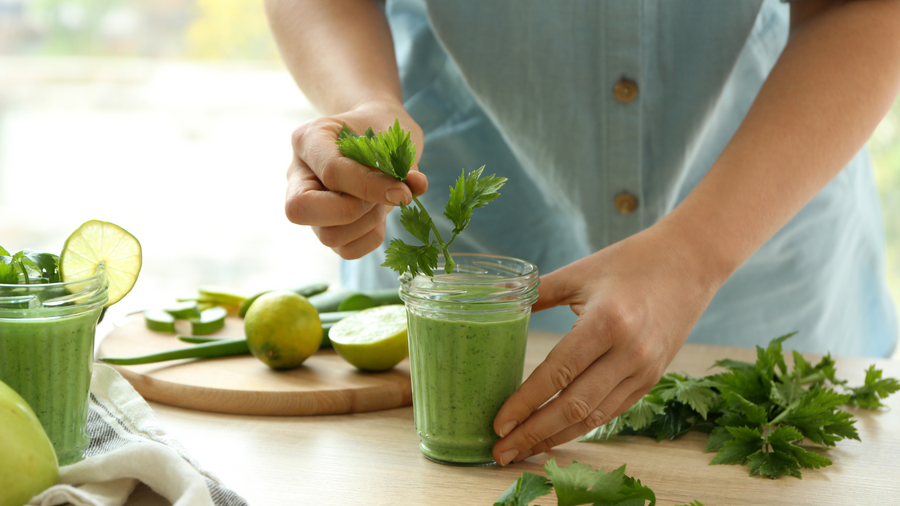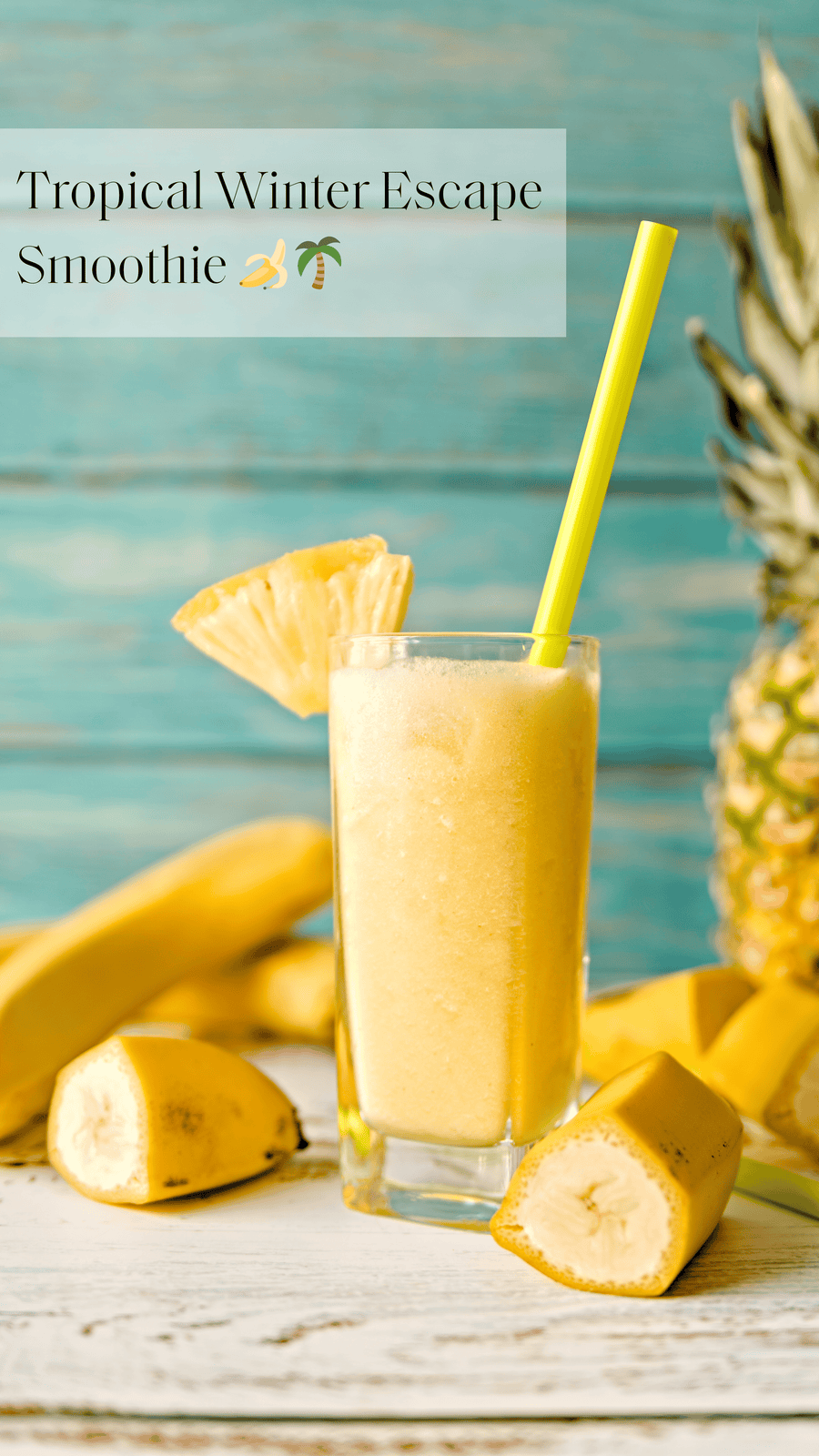Coconut milk is an excellent nutrient-dense substitute for cow's milk. Coconut milk has traditionally been used in South Asian and South-East Asian cuisines. It is also commonly used as a food ingredient in tropical Latin America, Caribbean regions, and some parts of Africa. Recently, coconut milk has become more widespread as a vegan substitute for dairy milk. It has numerous benefits that help you keep healthy and fit.
What is Coconut Milk?
Coconut milk is a white milky substance extracted from the flesh of mature coconuts. It has a thick creamy texture due to the high level of oil content. The oils in coconut milk are primarily saturated fats. You can easily make coconut milk at home by mixing shredded coconut in boiling water.
However, remember coconut milk and coconut water are not the same. The difference between coconut water and coconut milk is that coconut water is sweetish clear water found inside the coconut, and coconut milk is an opaque white substance extracted from its pulp.
Fresh coconut vs. coconut milk
Fresh coconut is the coconut pulp that is white in color and slightly sweetish in taste. You cannot find it in young green coconuts. As the coconut matures, it grows the kernel that is commonly known as coconut pulp or coconut meat.
You can scrape the whole pulp easily. It has a firm texture and is high in fat. However, these are not harmful fats. In fact, the medium-chain triglycerides (MCTs) found in coconut help in reducing body fat. Besides, it supplies carbs, protein, and essential minerals like iron, copper, potassium, and manganese. You can use grated, shaved, or sliced coconut in cooking and baking.
You can imagine coconut milk as the liquid form of coconut meat. It has similar nutritional values as fresh coconut. However, when added to a dish, the taste and flavor of coconut milk are more subtle than grated or sliced coconuts.
Other Coconut Products
Coconut oil
Coconut oil is extracted by pressing the flesh of the mature coconut. Two types of coconut oils are available, virgin coconut oil and refined coconut oil. Nutritional value is higher in virgin coconut oil than the refined ones.
Besides its use in cooking, coconut oil is also used as hair oil. This is because putting coconut oil in hair helps prevent hair damage caused by protein loss.
Coconut oil is made of 80%-90% saturated fat. Besides, it has traces of minerals, vitamins, and plant sterols.
Coconut cream
Coconut cream is also rich in saturated fat. Both coconut cream and coconut milk are made with hot water and coconut pulp. Coconut cream is essentially the thicker version of coconut milk with a more creamy texture. The tastes are also very similar for both.
Coconut milk is made of one part shredded coconut and one part of water. To make coconut cream, you mix four parts of fresh coconut with one part of water. In addition to this, canned coconut milk uses preservatives to increase the shelf-life.
Nutritional Benefits of Coconut Milk
Has anti-inflammatory properties
Research found that coconut oils help reduce the formation of granulomas [1], a structure formed during inflammation. Thus, consuming coconut milk may help people who suffer from chronic and acute inflammatory conditions such as rheumatoid arthritis and lupus arthritis.
Coconut milk is also good for the skin. Many skin diseases like psoriasis, eczema and contact dermatitis result from chronic inflammation. The anti-inflammatory properties of coconut prevent these skin disorders and keep you healthy.
Improves immune system
Coconut milk contains a high amount of lauric acid that helps in boosting the body's immune system. Lauric acid also has antimicrobial properties [2].
It affects viral, bacterial, and fungal cell membranes that result in the death of those cells. Adding a small portion of coconut milk to your diet may significantly improve your natural defense against infections.
Another research suggests lauric acid may also help reduce the aggressive growth of cancer cells [3]. The study shows, lauric acid reduces tumor growth and helps in killing cancerous cells.
Contains healthy HDL cholesterol
HDL cholesterol or high-density lipoprotein cholesterol are often called good cholesterol that prevents heart disease.
Most of our body's cholesterol is made of low-density lipoprotein (LDL cholesterol), known as bad cholesterol. Higher LDL cholesterol levels in the blood increases the risk for stroke and heart disease. HDL absorbs the cholesterol from the blood and transfer it to our liver. The liver can then flush it out of our body.
Consuming a moderate amount of coconut milk can increase HDL cholesterol [4] in the body.
Good for weight loss
As mentioned earlier, the fat present in coconut milk is mostly MCTs. Evidence-based studies have shown that MCTs help reduce body weight [5] and support your diet if you follow the proper intake of coconut.
How exactly it helps in inducing weight loss is still unknown. However, some believe that when you consume MCTs through your food, you feel fuller for longer and do not get hungry. Thus, by reducing your calorie intake, MCTs reduce your weight.
Some other studies suggest, it enhances exercise endurance [6] and balances the hormones to regulate appetite. In addition, it aids in weight loss by increasing insulin sensitivity.
Rich in fatty acids
Coconut contains several fatty acids, including lauric acid, capric acid, and caprylic acid. While lauric acid is not entirely a medium-chain triglyceride, the other two are purely MCTs that promote metabolism support.
The medium-chain fatty acids present in coconut milk have a shorter chemical structure. Therefore, your body can quickly absorb and use MCTs due to their more concise structure. After you digest these fatty acids, they travel to the liver and immediately convert into energy.
Safety Precautions in Using Coconut Milk
Although coconut milk has many health benefits, you need to be careful when adding this to your diet. Following are some safety precautions that you should keep in mind.
- Due to its high-fat content, limiting the amounts of coconut milk intake is necessary. However, consuming too much coconut milk can bring adverse effects.
- Coconut milk has fermentable carbs. If you have irritable bowel syndrome, you may suffer from digestive issues after consuming coconut milk. Try adding a tiny portion of coconut milk to your diet to see whether your digestive system accepts it.
- Some people may have coconut allergies. The proteins present in coconut can generate allergic reactions, including nausea, vomiting, abdominal pain, and skin rashes. If you are allergic to coconut, you shouldn't add coconut milk to your dishes.
Adding Coconut Milk to your Recipes
Coconut milk enhances the texture of your dish and adds a subtle flavor. You can buy canned coconut milk from the grocery store or make your own. But remember, if you are making it at home, you should use it up the very day.
You can use coconut milk almost in all dishes that ask for milk. For example, you can cook meat, fish, and seafood with coconut milk. You can also add coconut milk to cereal bowls, smoothies, and oatmeal.
When adding coconut milk to your recipe, remember not to boil thick coconut milk at high temperatures. It will curdle. Add water to make a thin liquid mixture before boiling.
You can also find organic coconut milk in our TUSOL smoothie and latte blends.
Take Away
Coconut milk has been used for hundreds of years in many parts of the world. However, it gained popularity in the Western world only in the recent past. Many people like the taste and smell of coconut milk over the other vegan milk substitutes. As coconut milk also contains a high level of fats, it adds a rich, creamy texture to the dish.
A healthy amount of coconut milk in your food promotes weight loss, supplies proper nutrition, reduces the risk of heart attack, and boosts your immunity power.
References:
[1] P. Khonsang, & A. Panthong. Anti-inflammatory, analgesic, and antipyretic activities of virgin coconut oil.
https://www.tandfonline.com/doi/full/10.3109/13880200903062614
[2] Lindsey K. Elmore, Gwen Nance, Samantha Singleton, & Luke Lorenz. (2014). Treatment of Dermal Infections with Topical Coconut Oil- A review of efficacy and safety of Cocos nucifera L. in treating skin infections.
[3] Rosamaria Lappano, Anna Sebastiani, Francesca Cirillo, Damiano Cosimo Rigiracciolo, Raffaella Galli, Rosita Curcio, Roberta Malaguarnera, Antonino Belfiore, Anna Rita Cappello, & Marcello Maggiolini. (2017). The lauric acid-activated signaling prompts apoptosis in cancer cells.
https://www.nature.com/articles/cddiscovery201763
[4] Kay-Tee Khaw, Stephen J Sharp, Leila Finikarides, Islam Afzal, Marleen Lentjes, Robert Luben, & Nita G Forouhi. (2018). Randomised trial of coconut oil, olive oil or butter on blood lipids and other cardiovascular risk factors in healthy men and women.
https://www.ncbi.nlm.nih.gov/pmc/articles/PMC5855206/
[5] Sabri Ahmed Rial, Antony D. Karelis, Karl-F. Bergeron, & Catherine Mounier. (2016). Gut Microbiota and Metabolic Health: The Potential Beneficial Effects of a Medium Chain Triglyceride Diet in Obese Individuals.
https://www.ncbi.nlm.nih.gov/pmc/articles/PMC4882694/
[6] Ying Wang, Zhenzhen Liu, Yi Han, Jiping Xu, Wen Huang, & Zhaoshen Li. (2018). Medium Chain Triglycerides enhances exercise endurance through the increased mitochondrial biogenesis and metabolism.
https://journals.plos.org/plosone/article?id=10.1371/journal.pone.0191182






